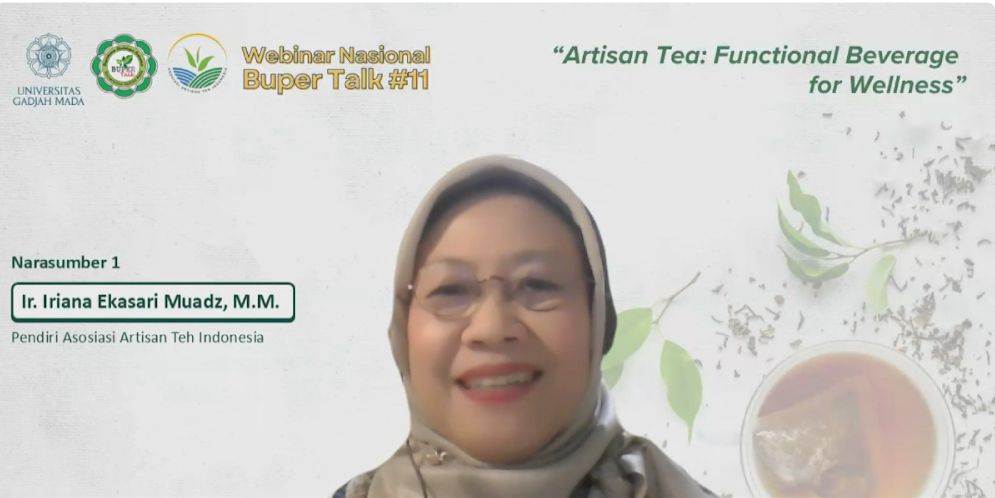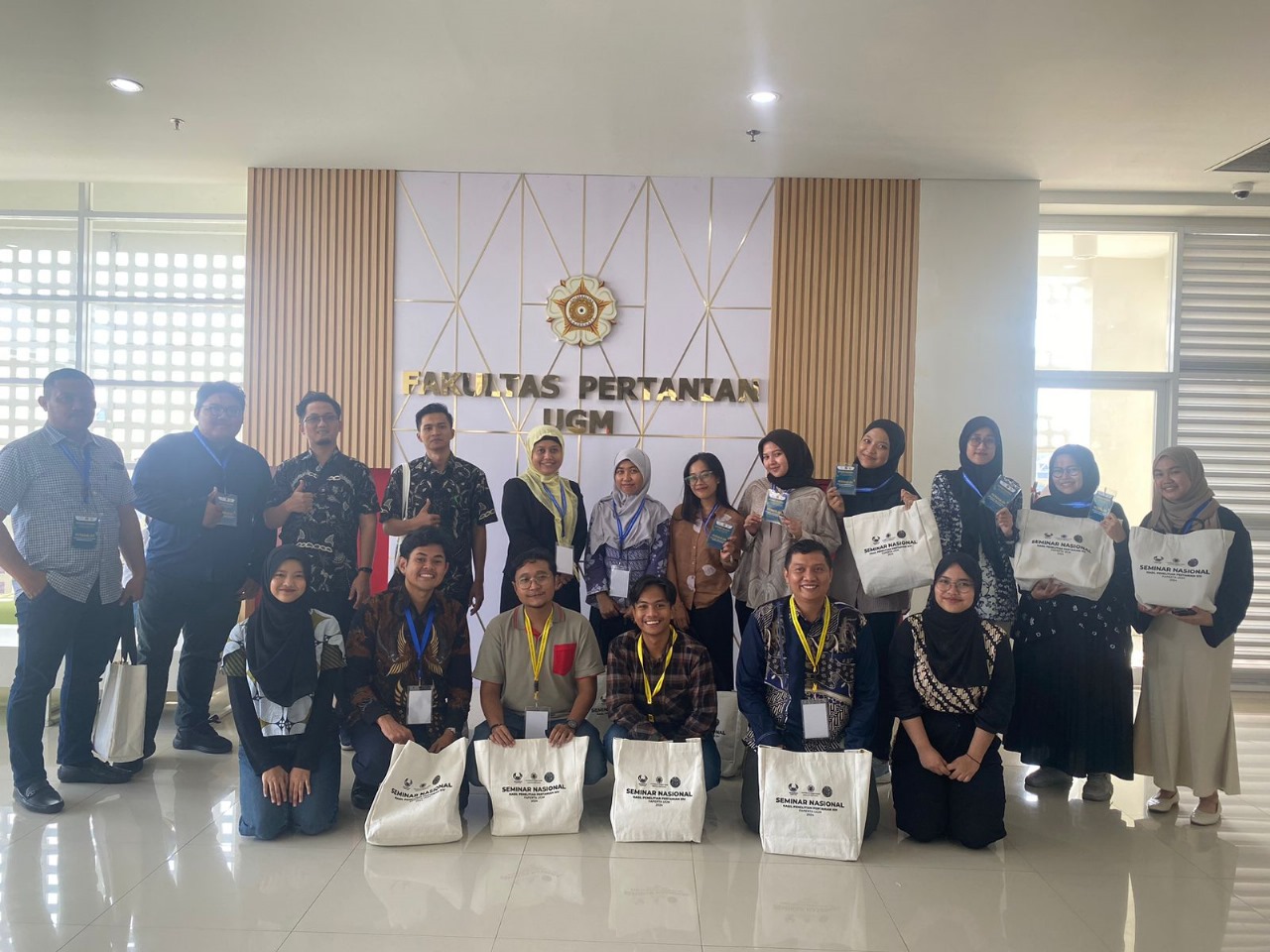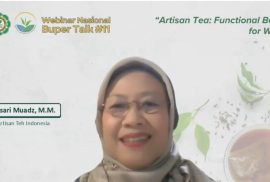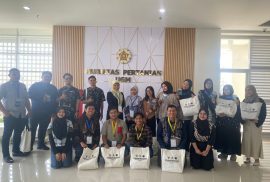 BUPER Talk, a national webinar organized as part of the 79th Anniversary of the Faculty of Agriculture Universitas Gadjah Mada (Faperta UGM), was held by the Department of Agronomy on 27 August 2024. The online event was conducted via Zoom, focusing on the theme “Artisan Tea: Functional Beverage for Wellness.” The webinar featured two speakers: Ir. Iriana Ekasari Muadz, M.M., Founder of the Indonesian Artisan Tea Association, and Dr.nat.techn. Rizky Pasthika Kirana, S.P., M.Sc., a lecturer from the Department of Agronomy, Faculty of Agriculture, UGM. The session was moderated by Dr. Elly Syafriani, S.P., also from the Department of Agronomy.
BUPER Talk, a national webinar organized as part of the 79th Anniversary of the Faculty of Agriculture Universitas Gadjah Mada (Faperta UGM), was held by the Department of Agronomy on 27 August 2024. The online event was conducted via Zoom, focusing on the theme “Artisan Tea: Functional Beverage for Wellness.” The webinar featured two speakers: Ir. Iriana Ekasari Muadz, M.M., Founder of the Indonesian Artisan Tea Association, and Dr.nat.techn. Rizky Pasthika Kirana, S.P., M.Sc., a lecturer from the Department of Agronomy, Faculty of Agriculture, UGM. The session was moderated by Dr. Elly Syafriani, S.P., also from the Department of Agronomy.
Arsip:
SDG 3:Good Health and Well-being

The Faculty of Agriculture Universitas Gadjah Mada (Faperta UGM) held the 14th National Seminar on Agricultural Research as part of the 78th Anniversary of the Faculty of Agriculture UGM on Saturday, 21 September 2024. During the event, participants were divided into eight classes focusing on specific agricultural fields. One of them was the Microbiology Class, held at the Agrotropical Learning Center (AGLC) of the Faculty of Agriculture UGM. This class highlighted the potential of microbes in supporting sustainable agriculture.


